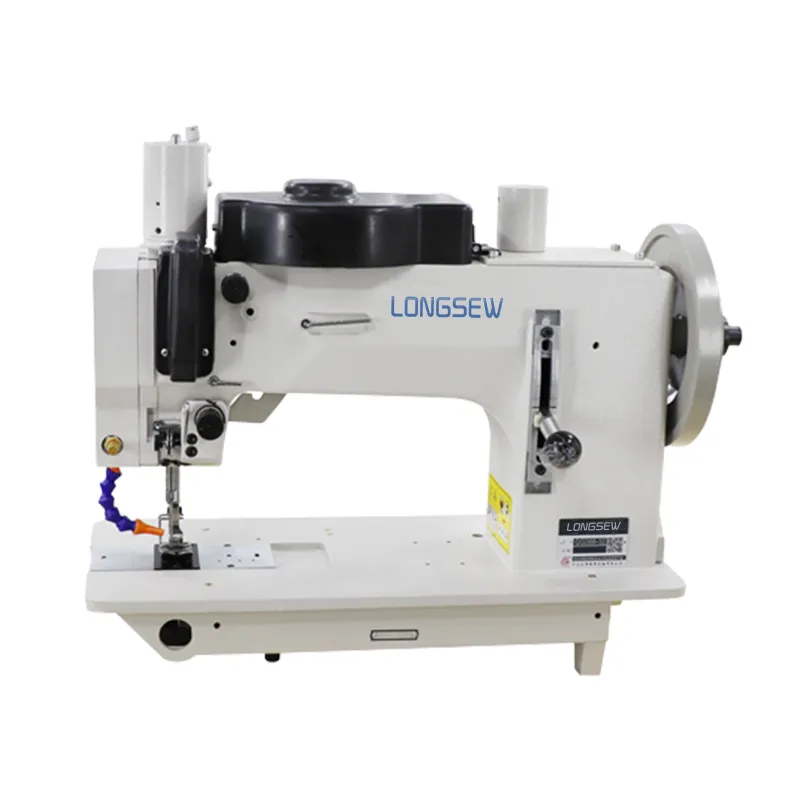industrial overlocker prices
Industrial Overlocker Prices An Overview
In the realm of textile production, industrial overlockers, also known as sergers, hold a crucial role in enhancing the efficiency and quality of garment manufacturing. These machines are indispensable for finishing seams, preventing fraying, and providing a professional look to various fabric types. As the demand for high-quality textiles grows, so does the need for reliable overlockers. However, potential buyers often find themselves wondering about the prices associated with these machines. This article delves into the factors influencing industrial overlocker prices, the range of pricing, and tips for making an informed purchasing decision.
Factors Influencing Prices
1. Brand Reputation Like many other industrial machines, overlocker prices are significantly influenced by the brand. Renowned brands such as Juki, Brother, and Pfaff tend to command higher prices due to their reputation for durability, quality, and reliability. Investing in a well-known brand can often lead to better performance and longevity, making it a desirable option for many manufacturers.
2. Machine Features The features of an industrial overlocker can vary greatly from basic models to advanced machines with multiple functionalities. Basic models, which can perform a single overlocking stitch, are typically more affordable. However, machines with advanced features such as differential feed, an extensive range of stitch options, and automated settings can substantially increase the price. It’s essential for buyers to consider the features they truly need relative to their budget.
3. Performance and Speed Industrial overlockers are designed for high-speed operations, which is a critical factor in a production environment. Machines capable of sewing at higher speeds and with greater efficiency usually come with a higher price tag. Investing in a faster machine can lead to increased productivity, thus justifying the expense in a business context.
4. Build Quality and Durability The materials and construction quality of the machine also affect its price. Overlockers made from high-quality metals and components are likely to last longer and perform better over time. Additionally, machines designed for heavy-duty applications, such as those used for denim or thicker fabrics, will typically be priced higher than those intended for lighter materials.
5. Location and Market Trends Prices can be influenced by the geographical location and current market trends. In regions with a high demand for textile production, prices may be elevated due to competition and availability. This dynamic is crucial for businesses considering purchasing an overlocker, as market fluctuations can impact the overall cost.
industrial overlocker prices

Price Range
The price of industrial overlockers can vary widely, typically ranging from $300 to over $3,000. Entry-level machines suitable for small businesses or home use may start at around $300 to $600. These models are usually simpler and may not include the most advanced features or the highest speed capabilities.
Mid-range industrial overlockers, which offer a good balance between price and features, usually fall between $700 and $1,500. These machines often come with additional stitch options and improved performance, making them a popular choice for small to medium-sized garment manufacturers.
High-end industrial overlockers, priced from $2,000 to $3,000 or more, are designed for large-scale production facilities that require speed, precision, and durability. These machines come equipped with the latest technology and can handle a variety of fabrics efficiently.
Making an Informed Purchase
When purchasing an industrial overlocker, it’s essential to weigh your options carefully. Start by assessing your production needs, the types of fabrics you’ll be working with, and your budget. Research different brands and models, read user reviews, and consider the warranty and support offered by the manufacturer.
Moreover, it’s advisable to explore second-hand markets, as used machines can provide excellent value for those looking to save money. Inspecting the machine and ensuring it’s in good working condition is vital.
In conclusion, while industrial overlocker prices can vary greatly based on several factors, understanding what to consider when making a purchase can help ensure that you select the right machine for your needs. Quality overlockers are an investment that can significantly enhance the productivity and quality of textile production, making them an invaluable asset in the industry.
-
Industrial Cylinder Arm Sewing Machine: Revolutionizing Heavy-Duty SewingNewsJul.28,2025
-
Cylinder Arm Sewing Machine: Perfect for Special Sewing ApplicationsNewsJul.28,2025
-
Cylinder Bed Sewing Machine: Essential for Sewing Complex MaterialsNewsJul.28,2025
-
Heavy Duty Sewing Machine: The Essential Tool for Industrial ApplicationsNewsJul.28,2025
-
Computerized Pattern Sewing Machine: Revolutionizing Precision StitchingNewsJul.28,2025
-
Heavy Duty Industrial Sewing Machine: Power Meets PrecisionNewsJul.28,2025
-
Leather Sewing Machine: The Industrial Standard for Tough MaterialsNewsJul.18,2025





























